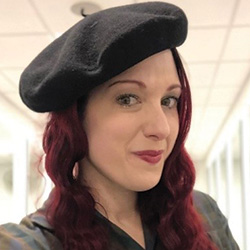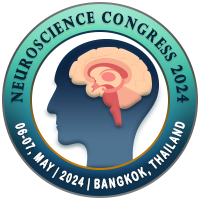
Piper Hutson
Lindenwood University, United States of AmericaTitle: Minimizing Trauma through Sensory Considerations in Museum Environments: Neurological Connections of the Brain and PTSD Considerations in Neuroarts
Abstract
Museums are
increasingly becoming spaces for promoting learning and education about complex
topics, including the human brain and neurological conditions. However, museum
environments can also be overwhelming and triggering for individuals with
sensory processing disorder and those who have experienced trauma, such as
those living with post-traumatic stress disorder (PTSD). This paper explores
the ways in which sensory considerations can be used to create a safe and
supportive environment for museum visitors with neurological difficulties using
a case study of an exhibition on neurological connections of the brain. We review the current literature on PTSD and
sensory processing and highlight the
potential triggers that museum exhibitions may pose to individuals with PTSD.
We then describe the development and implementation of a sensory-friendly
exhibition on the neurological connections of the brain and PTSD
considerations. This exhibition features a range of sensory considerations,
including low lighting, soothing soundscapes, tactile elements, and the option
for visitors to exit the exhibition at any time.
Our findings suggest that sensory considerations
can play a key role in creating a welcoming and accessible environment for
individuals whose physiology has been altered by trauma. Museums have an
important role to play in promoting education and awareness about neurological
disorders in a way that is inclusive and trauma-informed. By sharing our
experiences, we hope to contribute to the growing body of literature on sensory
considerations in museums, and to promote greater understanding and empathy for
neurodiverse individuals
Biography
Prof. Piper Hutson has over sixteen years
of experience curating at galleries across the country and has co-curated over
forty exhibitions during her multiple positions, as well as head curating ten
shows in the past five years. She completed her EdD at Lindenwood University
with her dissertation work entitled The Role of Education in the Art Viewing Experience, comparing
the evolution of learning in museums and corporate art collections. With a
focus on 19th c. British art, she is also an adjunct professor having taught a
variety of courses for 8 years, both online and on ground. Her current work
with improving inclusivity in cultural heritage collections for neurodiverse
populations. She has co-authored several works on inclusivity in the workplace
and best practices on supporting neurodiversity in cultural heritage
institutions.

